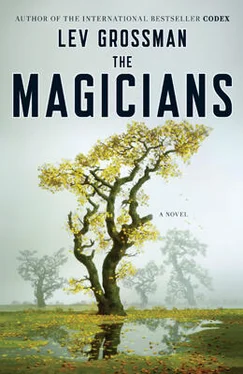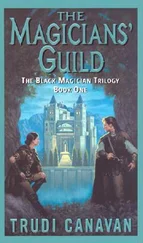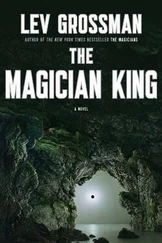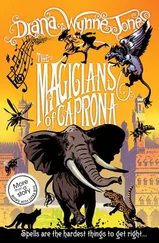But after a few weeks the energy for those educational field trips had all but evaporated. There was just too much to distract them, and nothing particularly urgent to be distracted from. Magic would always be there, and it was hard work, and he’d been doing it for a long time. What Quentin needed to catch up on was life. New York’s magical underground may have been limited, but the number and variety of its drinking establishments was prodigious. And you could get drugs here — actual drugs! They had all the power in the world, and no work to do, and nobody to stop them. They ran riot through the city.
Alice didn’t find all this quite as exciting as Quentin did. She had put off the kind of civil service appointment or research apprenticeship that usually ensnared serious-minded Brakebills students so she could stay in New York with Quentin and the others, but inspite of that she showed signs of actual unfeigned academic curiosity, which caused her to spend a good part of every day studying magic instead of, for example, recovering from having gone out the night before. Quentin felt mildly ashamed for not following her example, enough that he even made noises about relaunching his failed lunar expedition, but not so much that he actually did anything about it. (Alice cycled through a sequence of space travel-related nicknames for him — Scotty, Major Tom, Laika — until his lack of progress began to make them more humiliating than funny.) He felt entitled to blow off steam and shake off the Brakebills pixie dust and generally “live.” And Eliot felt that way, too (“Ain’t that why we got livers ?” he said in his exaggerated Oregoner accent). It wasn’t a problem. He and Alice were just different people. Isn’t that what made it interesting?
At any rate Quentin felt interesting. He felt fascinating. For the first year after graduation his financial needs were taken care of by an immense secret slush fund, amassed covertly over the centuries through magically augmented investing, that yielded a regular allowance for all newly minted magicians who needed it. After four cloistered years at Brakebills, cash was like a magic all its own: a way of turning one thing into another thing, producing something out of nothing, and he worked that magic all over town. Money people thought he was artsy, artsy people thought he was money, and everybody thought he was clever and good-looking, and he got invited everywhere: charity social events, underground poker clubs, dive bars, rooftop parties, mobile all-night in-limo narcotics binges. He and Eliot passed themselves off as brothers, and their double act was the hit of the season. It was the revenge of the nerds.
Night after night Quentin would return home toward dawn, alone, deposited in front of his building by a solemn solitary cab like a hearse painted yellow, the street awash with blue light — the delicate ultrasound radiance of the embryonic day. Coming down off coke or ecstasy, his body felt strange and heavy, like a golem fashioned from some ultra-dense star-metal that had fallen from the sky and cooled and congealed into human form. He felt so heavy that he could break through the brittle pavement any second, and plunge down into the sewers, unless he placed his feet gently and precisely in the center of each sidewalk square in turn.
Standing alone amid the still, stately mess of their apartment, his heart would brim over with regret. He felt like his life had gone terribly wrong. He shouldn’t have gone out. He should have stayed home with Alice. But he would have been so bored if he’d stayed home! And she would have been bored if she’d come out! What were they going to do? They couldn’t go on like this. He felt so grateful to her for not having seen the excesses he had so eagerly indulged in, the drugs he had ingested, the manic flirting and pawing in which he had engaged.
Then he would take off his clothes, which reeked of cigarette smoke, like a toad shedding its skin, and Alice would stir sleepily in the sheets and sit up, the white sheet slipping down off her heavy breasts. She would lean against him, their backs against the cool white wooden curl of their sleigh bed, not speaking, and they would watch as the dawn came up and a garbage truck moved haltingly down the block, its pneumatic biceps gleaming as it greedily consumed whatever its overalled attendants flung into it, ingesting what the city had expectorated. And Quentin would feel a lofty pity for the garbagemen, and for all the straights and civilians. He wondered what they could possibly have in their uncharmed lives that made them think they were worth living.
He heard Eliot try the door, find it locked, and fumble around for his key; Eliot shared an apartment with Janet in Soho, but he was over at Quentin and Alice’s so much that it was easier just to give him his own key. Quentin strolled around the open-plan apartment, half-heartedly straightening up, snapping up condom wrappers and underwear and decaying food and depositing them in the trash. It was a beautiful place in a converted factory, all wide-planked, thickly varnished wood floors and arched warehouse windows, but it had seen more considerate tenants. He’d been surprised to discover when they moved in together that while he was an indifferent housekeeper, Alice was the true slob of the relationship.
She retreated to the bedroom to get dressed. She was still in her nightgown.
“Morning,” Eliot said, although it wasn’t. He loitered just inside the rolling metal freight door, wearing a long overcoat and a sweater that had been expensive before moths got to it.
“Hey,” Quentin said. “Just let me grab my coat.”
“It’s freezing out there. Is Alice coming?”
“I didn’t get that impression. Alice?” He raised his voice. “Alice?”
There was no answer. Eliot had already faded back out into the hall. He didn’t seem to have much patience for Alice lately, as somebody who didn’t share his rigorous dedication to pleasure-seeking. Quentin supposed her unfussy diligence reminded him unpleasantly of the future he was ignoring. Quentin knew it had that effect on him.
He hesitated on the threshold, torn between conflicting loyalties. She would probably be grateful for some quiet time to study.
“I think she’s coming later,” Quentin said. He called in the direction of the bedroom: “Okay! Bye! I’ll see you there!”
There was no answer.
“Bye Mom!” Eliot yelled.
The door closed.
Like everything else, Eliot was different in New York. At Brakebills he had always been supremely aloof and self-sufficient. His personal charm and odd appearance and talent for magic had raised him up and set him apart. But since Quentin had joined him in Manhattan, the balance of power between them had shifted somehow. Eliot hadn’t survived transplantation unscathed; he no longer floated easily above the fray. His humor was more arch and bitter and childish than Quentin remembered. He seemed to be getting younger as Quentin got older. He needed Quentin more, and he resented Quentin for that. He hated to be left out of anything, and he hated to be included in anything. He spent more time than he should have on the roof of his apartment building smoking his Merits and God knows what else — there wasn’t much you couldn’t find if you had the money, and they had the money. He was getting too thin. He was depressed and turned nasty when Quentin tried to jolly him out of it. When annoyed he was fond of saying, “God, it’s amazing I’m not a dipsomaniac” and then correcting himself: “Oh, wait, that’s right…” It had been funny the first time. Sort of.
At Brakebills Eliot had started drinking at dinnertime, earlier on weekends, which was fine, because all the upperclassmen drank at dinner, though not all of them bartered their desserts for extra glasses of wine the way Eliot did. In Manhattan, with no professors watching over them, and no classes to be sober for, Eliot was rarely without a glass of something in his hand from one in the afternoon on. Usually it was something relatively innocuous, white wine or Campari or a big dilute tumbler of bourbon and soda clunking with ice. But still. Once when Eliot was nursing a stubborn cold, Quentin remarked lightly that maybe he should consider something more wholesome than a vodka tonic with which to chase his plastic jigger of DayQuil.
Читать дальше












